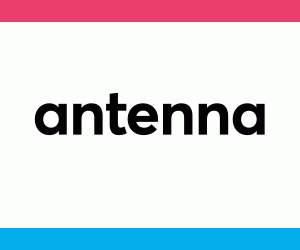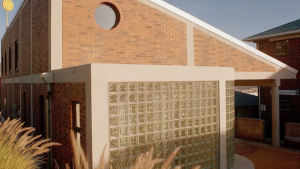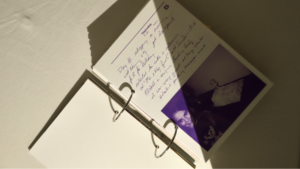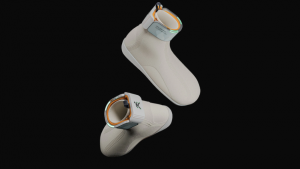Part of the Project
Factors like poverty, underdeveloped technology and a lack of infrastructure are seen as limiting for some. But for others, these restrictions and many more present an opportunity for innovation that goes against the status quo. It is this out of the box thinking that has led to the development of solutions to the world’s toughest problems. Here, we look at some of the design frontiers that shaped 2018 and will go on to push the boundaries for years to come.
The Blockchain and the rise of crypto-politics
We’ve written a number of stories about blockchain this year and spoken to a medley of experts, but as fascinating as Santiago Siri, the former game developer turned political theorist wants to use the trust inherent in the blockchain to decentralise the way we vote. If it works, it’ll change democracy forever.
Siri calls it Liquid Democracy or democracy for the internet age. "Democracy is not an absolute idea, it’s a work in progress. It will never be complete,” he explains.
Siri envisioned a world where politics is not carried out by certain members of society but rather that it become a part of our daily lives. “We should create institutions that enable that kind of life for all of us,” he says.
“That can be done by making this transnational, borderless, permissionless networks the default setting of our political and financial configuration rather than the ancient institutions of the past”
Low-cost medicine and all that it can offer
Like the blockchain, advancements in medicine is something we cover widely. From drone use to a reinvention of medical devices, low-cost medicine is an ever-evolving field. It’s a human-centred approach to medicine that puts the most vulnerable, the poor, first.

Take Kulinda for example. UK Product Designer, Stefan Guiton designed Kulinda as a to diagnose pneumonia in children quickly and effectively. The device, which can be strapped to the child, doesn’t require expensive infrastructure or a medical professional to operate.
Read about what inspired the design
Waste: recycle, upcycle and redesign
Dave Hakkens, a designer from the Netherlands, makes open source machines that can recycle plastic waste. His goal is simple: "try to make the world better by making things".
Hakkens first spoke at Design Indaba Conference in 2014 and will be back on stage again in 2019 with his award-winning project, Precious Plastic.
In the project he makes detailed instruction videos to show people how to build their own recycling machines.
He's collaborated with other designers as well as people in developing countries to show that one does not need too many resources to make functional objects with plastic.
So far, he has won a D&AD award and the Eco Coin award from Next Nature Network for his work.
Book a ticket to see him and many more innovative speakers in Cape Town this coming March.
The intersection of biology, architecture and invention
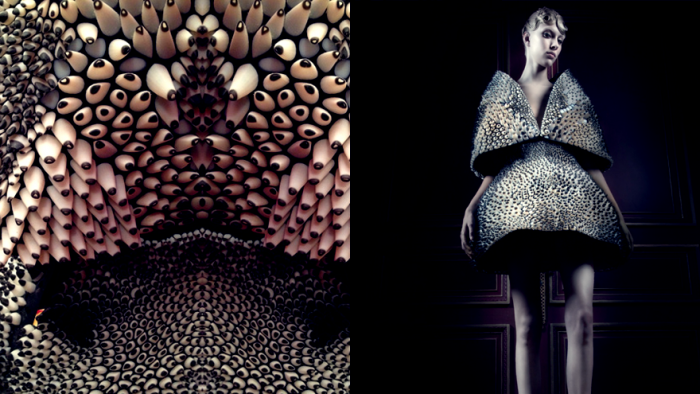
This year, we had the pleasure of hosting MIT Media Lab professor Neri Oxman on the Design Indaba Conference stage. While her ideas were too otherworldly to release on video, we were left assured that our futures are in good hands.
Oxman, an American-Israeli designer and the founding director of The Mediated Matter Group creates unique designs that live somewhere between environmental design and high-tech morphogenesis (the way organisms develop their shapes).
She’s a designer in the bio-digital age. With her team, her creations have led to over 100 scientific papers and engineering patents.
They create novel design technologies, most of which are fabricated using 3D-printing, to test the bounds of the materials we know today. In this line of work, scale is no issue – Oxman has synthesised objects from micro to building-size, all of which derived from what she and her team see in nature.
She’s also the winner of the Cooper Hewitt 2018 National Design Awards, a programme that seeks to promote design as a vital humanistic tool in shaping the world.
Read more about Oxman and Mediated Matter
And if you're looking for what's next, watch these design graduates take the stage at antenna conference:
On the future of food (Hint: It isn't about insects)
Should there be an Arctic Commons?
If service delivery were community dependent, what could it look like?

